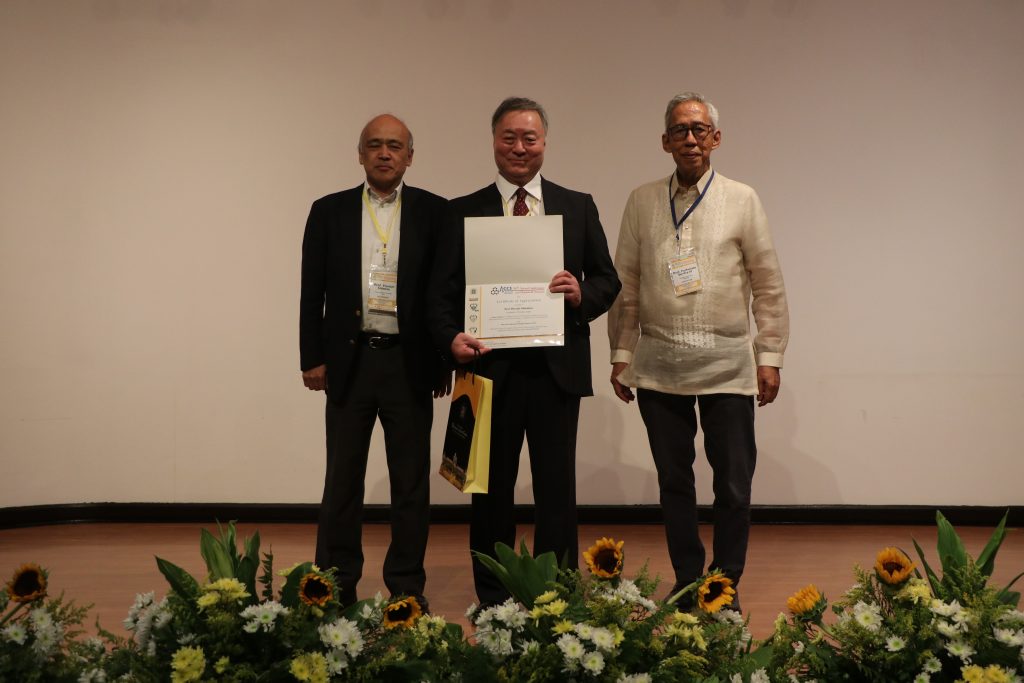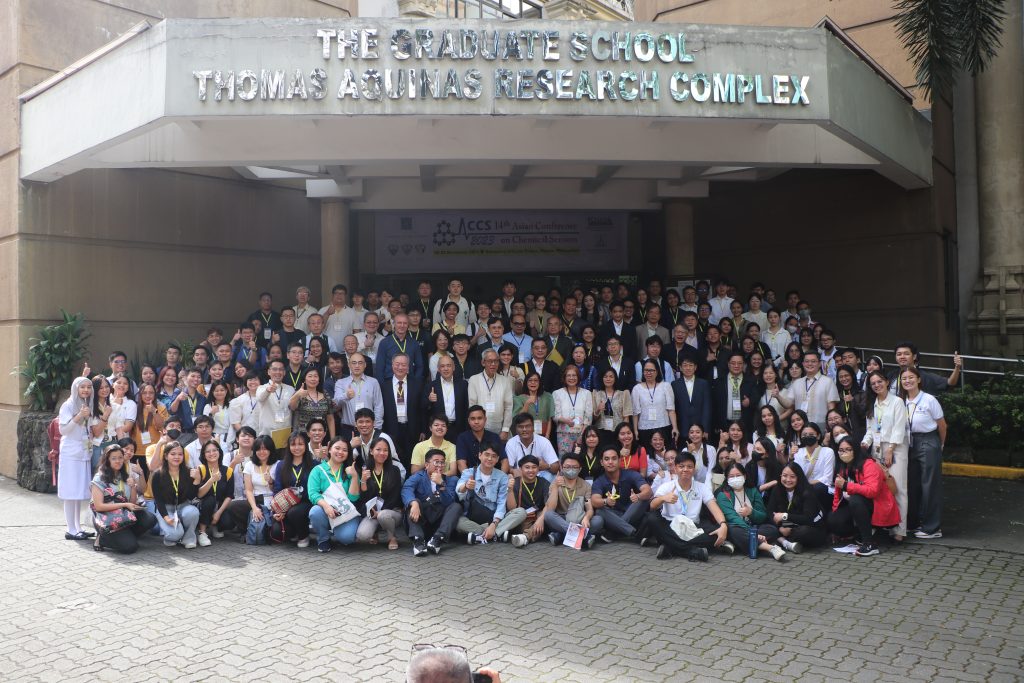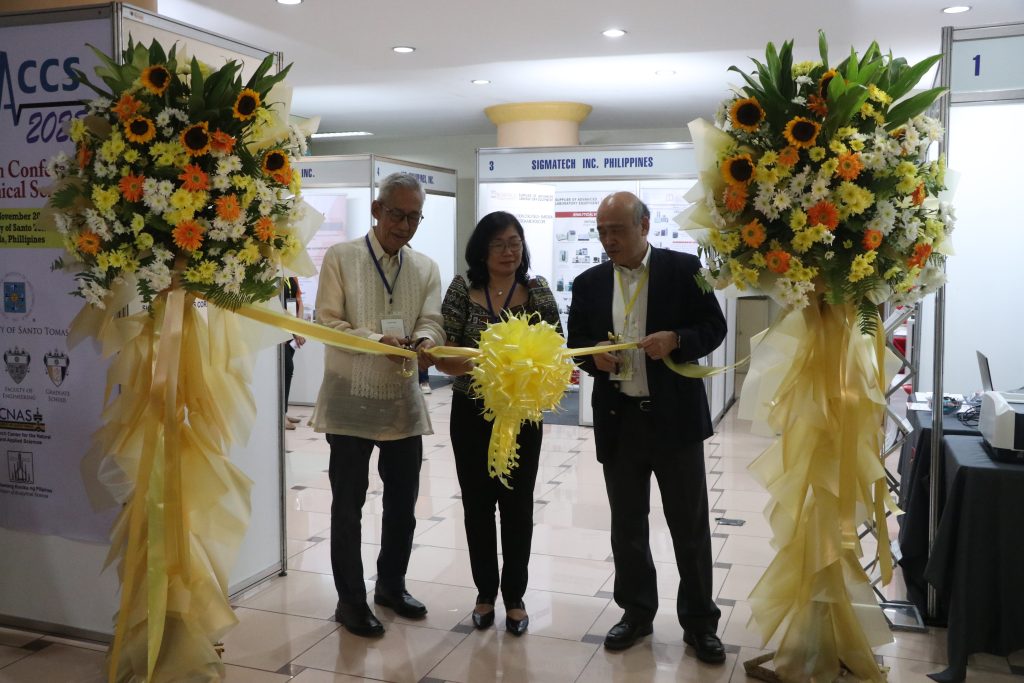The University of Santo Tomas hosted the 14th Asian Conference of Chemical Sensors held from November 20 to 23, 2023 at the Thomas Aquinas Research Complex.



ACCS 2023 is the 14th Asian Conference on Chemical Sensors. It is a multidisciplinary meeting of scientists and engineers engaged in research and innovation in the field of chemical sensors. It is organized by the University of Santo Tomas with the cooperation of the Chemical Society of the Philippines (Kapisanang Kimika ng Pilipinas) – Division of Analytical Science.
In a video message, DOST Secretary Renato U. Solidum, Jr., Ph.D. commended the success of the event, saying “this would definitely inspire our young scientists and engineers to further their desire to discover technologies related to chemical sensor research and development, which are crucial in environmental and medical applications.”
UST Secretary-General and College of Science Regent Rev. Fr. Louie R. Coronel, O.P., EHL warmly welcomed participants to the 14th ACCS, calling the conference a great platform “where brilliant minds across Asia and beyond converge to share insights, research findings, and technological advancements in the field of chemical sensors, whose importance cannot be overstated in our rapidly evolving world where precision and accuracy in detecting and analyzing various substances are crucial in scientific, industrial, environmental, and healthcare applications.”
University of Toyama (Japan) Graduate School of Science and Engineering Professor Hiroaki Shinohara was the first to present his plenary lecture titled “Sensing Cell State by SPR Imaging Technique: Assessing the Differentiation State of Stem Cells into Neurons or Cardiomyocytes by SPR Monitoring”. The study found that the surface plasmon resonance (SPR) imaging technique is effective for drug sensing because it enables noninvasive observation of intracellular reactions to drug stimuli, and can continuously assess changes in cellular states, such as differentiation of stem cells into neurons or cardiomyocytes, over a period of several days.
National Cheng Kung University (Taiwan) Professor Hung-Wei Yang discussed “Microneedle-Based Biosensors for Sampling, Diagnosis, and Monitoring“ for the second plenary lecture. He talked about three types of microneedle-based biosensors tailored for three specific purposes: an integrated hydrogel microneedle patch (HMNP) and lateral flow cassette (LFC) system for early diagnosis and daily management of chronic kidney diseases, a microneedle-based biosensor housed within a detection box that is dedicated to detecting the IgA antibody against the SARS-CoV-2 nucleocapsid protein (NP) and spike protein, and a glucose-biosensing microneedle patch (GBMP) to achieve instrument-free glucose monitoring in a painless and safe manner.
Pukyong National University (South Korea) Professor Wan Young Chung delivered the third plenary lecture on “Wireless Battery-Free Sensors with Optimized RF Energy Harvesting”. He reported that radio frequency (RF) energy harvesting technologies hold great potential in enabling wireless sensors to operate without traditional power sources.
Jilin University Professor Geyu Lu served as the fourth plenary speaker, with his presentation on “Mixed Potential Gas Sensors Based on Solid Electrolyte and their Applications,” where he discussed strategies to significantly improve the gas-sensitive performance of mixed potential gas sensors, paving the way for their practical applications in areas such as breath detection, pollution source tracking, atmospheric monitoring, and in situ indoor air quality assessment.
Invited speakers also include Prof. Dr. Ping Wang of Zhejiang University, Assoc. Prof. Yu-Jui Fan of Taipei Medical University, Prof. Jui-Ming Yeh of Chung Yuan Christian University, Prof. Yoshiteru Itagaki of Ehime University, Prof. Karsten Haupt of the University of Technology of Compeigne, Prof. Jose Bergantin, Jr., of UST, Prof. Hyoun-woo Kim of Hanyang University, Dr. Ni Luh Wulan Septiani and Assoc. Prof. Allan Christopher Yago of the National Research and Innovation Agency of Indonesia, and Prof. Manabu Tokeshi of Hokkaido University.
In addition to the abovementioned lectures, there were also over 50 research and poster presentations in various parallel sessions during the conference.




